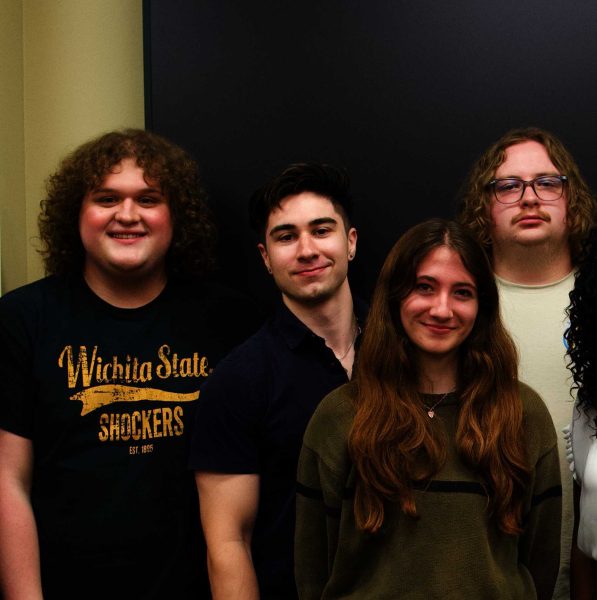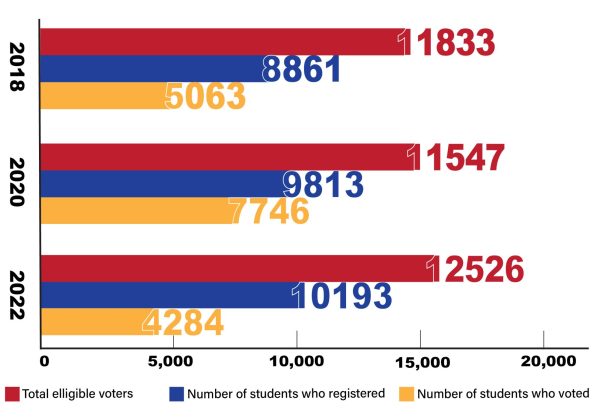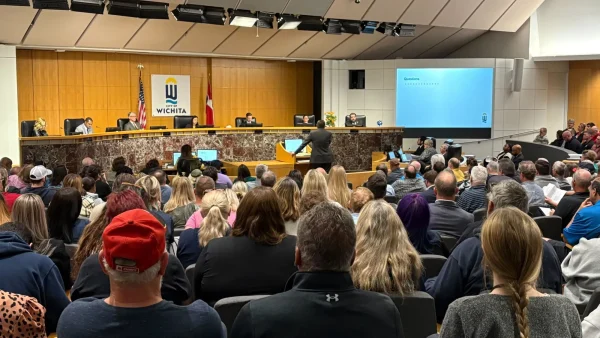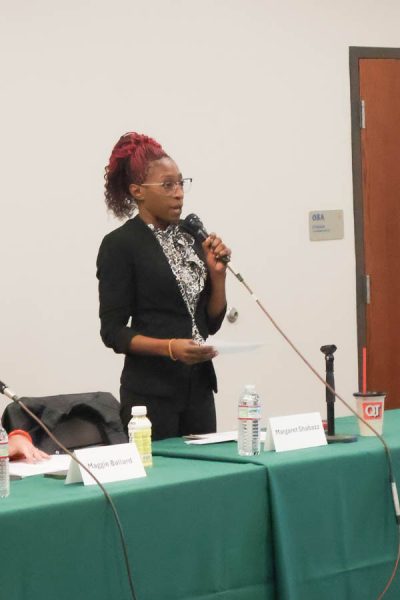Library campaign hopes to fund digitization of The Sunflower from 1896-1977
Print archives of The Sunflower date back to the paper’s origin in 1896. An online campaign hopes to raise enough money to digitize Sunflower archives.
Wichita State University Libraries Special Collections and University Archives are working to digitize The Sunflower archives. The time-consuming process, which will cost roughly $8,100, is being funded by donations.
The WSU Foundation’s fundraising campaign began months ago, but a lack of advertising has limited the contributions. To date, there have been seven donors, who have contributed $420 towards the project — accounting for 5% of the amount necessary to finish.
According to givecampus.com, the “Digitize Historic Sunflower Newspapers” campaign ends April 2, but The Sunflower was told on March 27 by Jessica Mirasol, curator of Special Collections and University Archives that the deadline can be extended.
“We have raised a little bit of money with it,” Mirasol said. “We haven’t had a whole lot of publicity so far for the fundraiser, but it is something we do want to work on.
“So far, we kind of have relied on word of mouth, and that has not gone very far.”
If the campaign is unsuccessful overall, it could affect the library’s ability to complete the project.
“If we are not able to raise the funds, we may have to make a smaller portion of it available, or it will take a lot longer.”
The Sunflower has been reporting WSU news since it’s first publication in 1896. It has been an independent, student-run newspaper since 1898.
The newspaper has provided coverage of political campaigns, arts and culture, university policy and leadership, student government, and sports for over 123 years.
One thing that’s currently missing from the library is a searchable, digitized version of decades of Sunflower news. WSU Archives and Special Collections is working to change that now. They’ve begun the process of digitizing issues of the paper.
“We are digitizing the very first issue, which was Jan. 1, 1896, all the way up through the very last issue in 1977,” Mirasol said.
They are not digitizing issues published between 1978 and 2019, due to changes in the copyright laws. In order to digitize and make any of those issues public, Special Collections would need to get written permission from every writer, designer, photographer, and advertiser who contributed to each paper — an impossible task.
But Mirasol said as copyright laws change, they will continue the process.
“Because it’s an independent newspaper and we pride ourselves on that, and it’s a good thing that it’s independently owned, but that interferes with what we can do with it in terms of the copyright,” Mirasol said.
The digitization idea came out of conversations between Mirasol, Dean of University Libraries Kathy Downes, and Special Collections and University Archives Program Consultant Mary Nelson.
“The Sunflower has so much information in it, and it’s such a useful resource for us,” Mirasol said. “It’s a great resource for our researchers, and it would be great for alumni to have access to it and just researchers in general.”
She said they have all the issues on microfilm, which can be digitized.
“The originals are very fragile in a lot of instances, so we’ve taken the microfilm and we’re having that digitized so that people can get to it online,” Mirasol said. “Microfilm is harder to access, and you need certain equipment. We have limited equipment.”
To digitize the issues, her team scans every page of a paper and then labels them by volume and image. The information goes into spreadsheets including the publication date, volume number, and page count. They then mark any preservation concerns such as brittle or torn pages or loose individual issues. Once the information gets uploaded, it can be made searchable.
It’s a slow process. Mirasol said they hope to have at least one year done and web-ready in the next month or two. By the end of the year, they hope to have half of the archives up and ready for people to interact with. She said people should be able to download issues of the paper as well.
What that timeline will look like without more money is unclear.
The digitization process is what the library focuses on. The fundraising is a little outside of their wheelhouse. That’s something that the WSU Foundation has expertise in.
Mirasol said the WSU Foundation helped them set up the campaign, set goals, and make sure the links worked on the website.
“There was some talk of teaming up to do some publicity for the campaign, but I don’t know how much of that was done,” Mirasol said. “I don’t know whose fault — I’m not saying any fault was done on either side.”
Mirasol said the library has not made much of a publicity push since Christmas.

Audrey Korte was a reporter and the opinion editor for The Sunflower. She hosted The Sunflower News Podcast.










